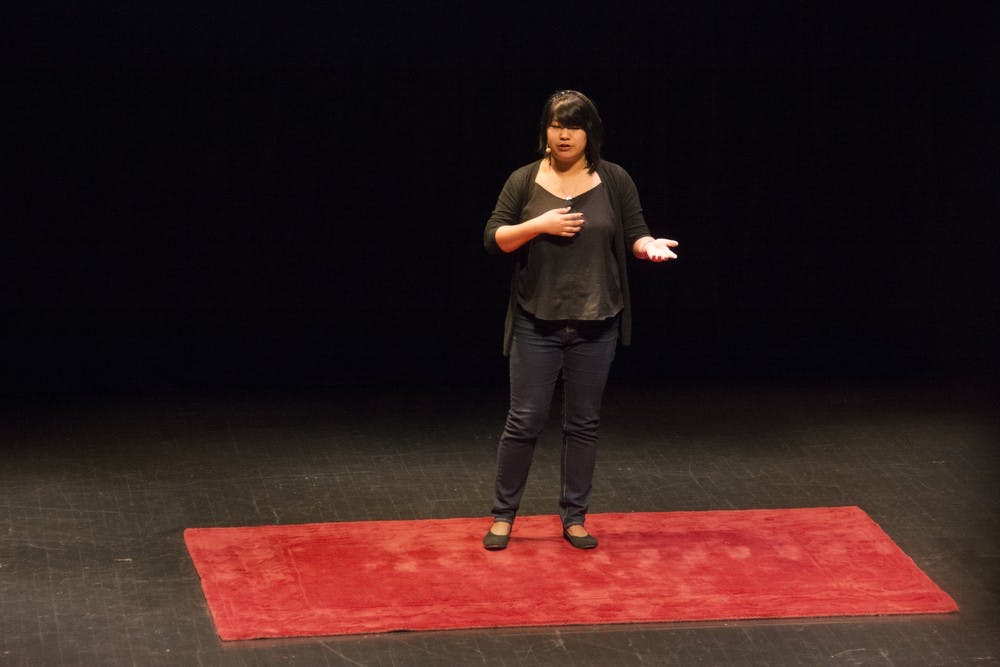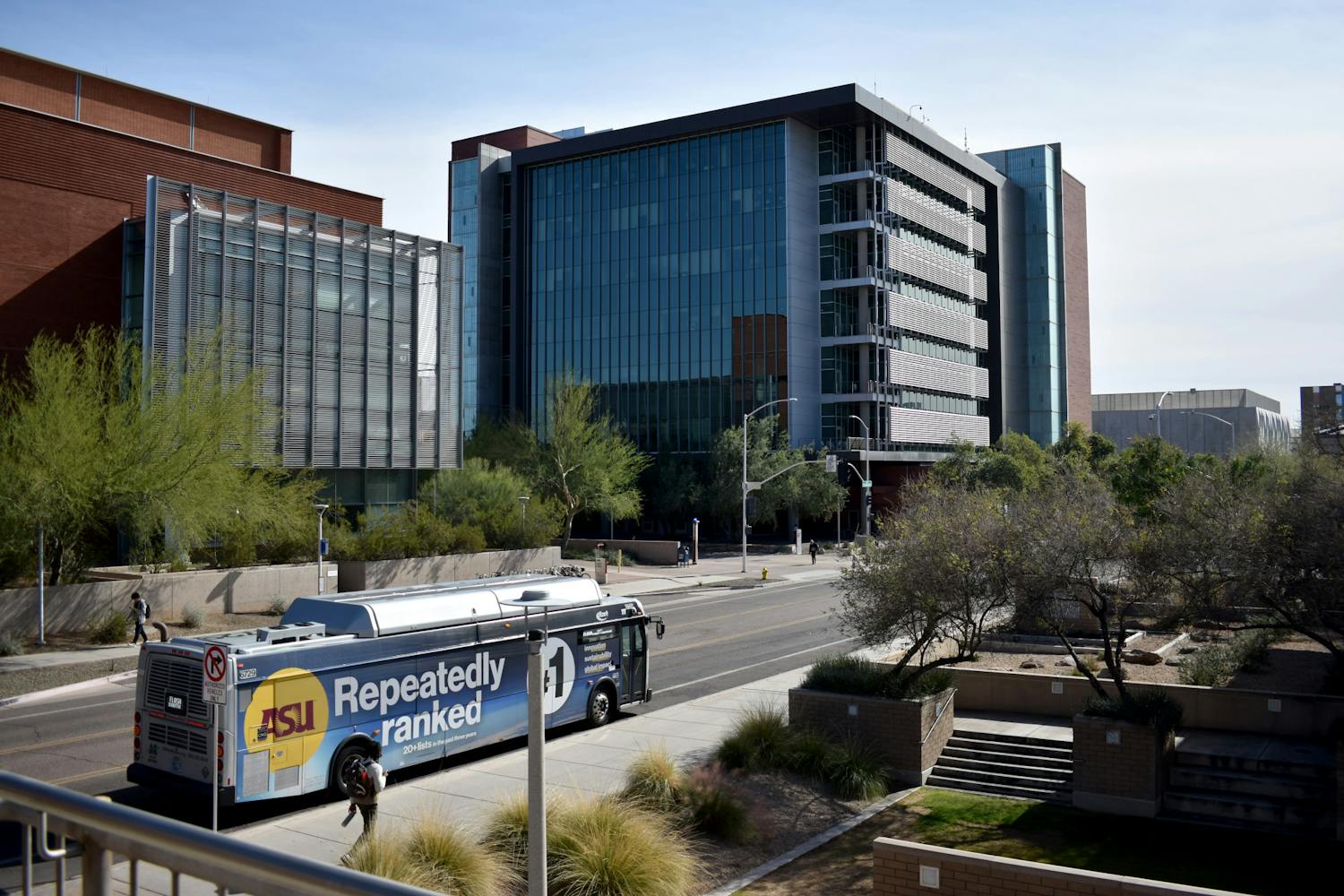When one hears the term “transracial,” it is immediately connected to Rachel Dolezal, former NCAAP chapter president, who used the term to describe herself.
But women and gender studies junior Emma-Li Thompson said “transracial” is a term Dolezal appropriated for herself.
“Transracial is when a child of a different color is adopted into a family of a different color,” Thompson said.
When Dolezal used the term, she erased a huge portion of the population, she said.
"Rachel Dolezal is absolutely not related to the term transracial at all,” Thompson said. "She has appropriated it and totally screwed up the whole meaning of it because when that happened, everyone started speaking out and talking about how transracial wasn’t real, that she just made it up.”
Transracial adoptees' unique experiences give them opportunities to learn about their own race.
Thompson, who is Chinese, was adopted into a white family in Scottsdale. She talked about her experience of transracial adoption at Changemaker Central Ignite @ ASU on Nov. 5.
“Usually with adoption, you only hear about parents talking about the adoptive kid’s experiences, but we rarely get to hear from the adoptees themselves,” she said.
Growing up, fellow students would tell her that her biological parents threw her in the trash. They would pull back their eyes and make squinty faces at her, she said.
She began to internalize racism, she said.
"My dad told me that there are only two races, there are blacks and there are whites, and if you’re not black, you’re white, so he already erased by race in that way,” she said. "They love me as a person, but not as a Chinese woman.”
Her parents wouldn’t listen to her when she talked about her experiences with racism at school, she said. They told her she was oversensitive.
“My mom would actually make squinty eyes at me when I was angry,” she said. “She would mock the way my face looked.”
But because of this experience growing up, she decided to learn more about social and political issues at ASU.
“Obviously, I’m learning about Asian studies too, to learn more about my own history and connecting to my culture,” she said.
She started off as a political science major, but changed to women and gender studies after taking an introductory class in the second semester of her freshman year.
“I fell in love with the major because it had everything that pertained to my life, my experiences and it allowed me to develop a sense of myself,” she said.
Biomedical engineering junior Meilin Ossanna however, doesn't have an exact definition of being a "transracial" adoptee. Ossanna was adopted from China by white parents as well, but didn't give it a second thought, she said.
"Honestly, it wasn’t until I got to college that I started to really think more about being a different race from my parents," she said. "Being transracial is part of my identity, but it’s definitely not how I characterize myself first.”
Ossanna had a different experience growing up, with a supportive family where her "physical appearance did not matter at all," she said.
"Part of this is due to the fact that both my sister and I are adopted from China,” Ossanna said. "We’re not biological sisters but we’re definitely real sisters. My sister and I grew up knowing we were adopted, which I think is the reason I don’t think about being a transracial adoptee at all.”
For Ossanna, the only other time being adopted mattered was when she went to China. Although people in China assumed she was fluent in Mandarin, her knowledge of the language is "very broken,” she said.
"Trying to explain to them is difficult especially in the context of the one-child policy,” Ossanna said. "I was adopted in 1995, which was towards the start of when Chinese-American adoptions became more widespread.”
Biomedical engineering freshman Nicole Penrose remembers walking around the grocery store as a child with her mother and getting “weird” looks.
"I also have a lot of memories of being asked if I was the friend when I was walking with my family and my white friends,” Penrose said. "People always seem slightly shocked when I tell them my parents are white.”
People often look down on adoption, whether transracial or not, she said. But in her experience, she said she got a “second chance at living the best life” she can.
Penrose, who was born in China and raised in a white family, said the only difference between her and her parents is her physical traits.
"I guess transracial is kind of like I'm living two lives — physically I identify as Asian, but mentally I'm just as white as any kid born in America and raised in the suburbs,” she said.
Related Links:
ASU center to study race, democracy
Week-long events to promote importance of ethnic studies
Reach the reporter at jenny.ung@asu.edu or follow @jenny__ung on twitter
Like The State Press on Facebook and follow @statepress on Twitter




